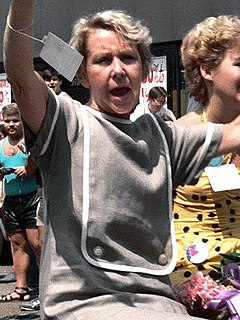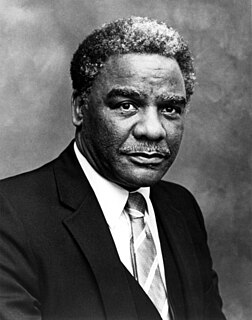
William Michael "Bill" Daley is an American lawyer, politician and former banker. He served as White House Chief of Staff to President Barack Obama, from January 2011 to January 2012. He also served as U.S. Secretary of Commerce, from 1997 to 2000, under President Bill Clinton. He has also served on the executive committee of JPMorgan Chase & Co. Daley was a candidate for Governor of Illinois in the 2014 gubernatorial election, until dropping out of the race on September 16, 2013. He ran in the 2019 Chicago mayoral election but came in third in the first-round voting, and did not advance to the runoff.
Edward Robert Vrdolyak is a former Chicago lawyer and politician. He was a powerful longtime Chicago alderman and was also head of the Cook County Democratic Party until 1987 when he ran unsuccessfully for Mayor of Chicago on the Illinois Solidarity Party ticket. He subsequently ran again in 1989 on the Republican Party ticket.

The 2006 Oregon gubernatorial election took place on November 7, 2006. Incumbent Democratic Governor of Oregon Ted Kulongoski ran for a second and final term as governor. Kulongoski faced several challengers in his primary, whom he dispatched to win his party's nomination a second time, while Republican nominee Ron Saxton, the former Chair of the Portland Public Schools Board and a candidate for governor in 2002 emerged from a crowded primary. Kulongoski and Saxton were initially going to be challenged in the general election by State Senator Ben Westlund, but Westlund withdrew his candidacy before the general election. There were, however, a number of strong independent challengers, the most notable of whom was Mary Starrett, the Constitution Party nominee. In a hard-fought campaign, Kulongoski won re-election by a surprisingly wide margin, winning his second term as governor.

The city of Chicago, Illinois held a nonpartisan mayoral election on Tuesday, February 22, 2011. Incumbent Mayor Richard M. Daley, a member of the Democratic Party who had been in office since 1989, did not seek a seventh term as mayor. This was the first election since 1947 in which an incumbent mayor of Chicago did not seek reelection.
The City Clerk of Chicago is in charge of record-keeping for the city of Chicago and its elections. When the Chicago City Council is in session, the City Clerk serves as council secretary. This position is a citywide elected office, one of three city-wide elected officials in the City of Chicago, with the Mayor and the Treasurer being the others.

The Chicago mayoral election of 2007 saw incumbent mayor Richard M. Daley won a landslide victory, garnering a 51-point margin of victory.

The Chicago mayoral election of 1999, which took place on February 23, 1999, resulted in the re-election of incumbent Richard M. Daley over Bobby Rush, with 428,872 votes to Rush's 167,709. Daley garnered a landslide 71.9% of the total vote, winning by a 44 point margin. This was the first officially nonpartisan Chicago mayoral election, per a 1995 Illinois law.

The Chicago mayoral election of 1995 resulted in the re-election of Democratic Party nominee incumbent Richard M. Daley over independent candidate Roland Burris, with 359,466 votes to Burris's 217,024. Daley won 60.1% of the total vote, winning by a landslide 24-point margin. The Republican candidate, Raymond Wardingley, fared poorly, with only 2.8% of the vote. The fourth nominee, Lawrence Redmond of the Harold Washington Party, won 0.9% of the votes. This was the last election for Mayor of Chicago where candidates ran under party labels.

The Chicago mayoral election of 1991 resulted in the re-election of incumbent Democrat Richard M. Daley to his first full-term. Daley had previously been elected to serve the remainder of Harold Washington's unexpired term in a special election held following Washington's death in office.

The Chicago mayoral election of 1987 was first the primary election on February 24, 1987 followed by the general election on April 7, 1987. The election saw the re-election of Chicago, Illinois' first African-American mayor, Harold Washington. Ed Vrdolyak, the leader of the Vrdolyak 29, unsuccessfully opposed him, running on Solidarity ticket. Former mayor Jane Byrne, who served from 1979 until 1983 unsuccessfully challenged Washington in the Democratic primary.

The Chicago mayoral election of 1983 was first the primary on February 22, 1983 which was followed by the general on April 12, 1983. The election saw the electing of Chicago, Illinois' first African-American mayor, Harold Washington. Incumbent Mayor Jane Byrne, who had served since April 1979 had lost renomination in the Democratic primary in a three–way race between herself, then–Congressman Washington, and then–State's Attorney Richard M. Daley in February 1983. Washington would face off against Republican nominee Benard Epton, winning with a 3.7% lead over Epton in the general election.

In the Chicago mayoral election of 1979 Democrat Jane Byrne defeated Republican Wallace Johnson by a landslide 66% margin of victory, winning more than 82% of the vote and becoming Chicago's first female mayor.

The 2015 Chicago aldermanic elections happened on February 24, 2015, to elect the 50 Aldermen that represent Chicago in the City Council. The elections are non-partisan and if no candidate receives an absolute majority, a runoff will be held between the top two finishers on April 7, 2015.

The 2016 United States House of Representatives elections in Illinois were held on November 8, 2016, to elect the 18 U.S. Representatives from the state of Illinois, one from each of the state's 18 congressional districts. The elections coincided with the 2016 U.S. presidential election, as well as other elections to the House of Representatives, elections to the United States Senate and various state and local elections.

In the Chicago mayoral election of 1977, interim mayor Michael A. Bilandic was elected to complete the remainder of an unexpired mayoral term, defeating Republican Dennis H. Block by a landslide 56% margin.

An election for Mayor of Chicago was held on February 26, 2019. The election is officially nonpartisan; the winner will be elected to a four-year term. Since no candidate received a majority of votes, a runoff election will be held on April 2, 2019 between the two candidates with the most votes. The elections are concurrent with the 2019 Chicago aldermanic elections that will elect all 50 members of the Chicago City Council, as well as with elections for City Clerk of Chicago and City Treasurer of Chicago.
Arthur Joseph Jones is an American neo-Nazi. He was the Republican candidate for Illinois's 3rd congressional district in the November 2018 midterm elections, losing to Democrat Dan Lipinski.

In the Chicago mayoral election of 1975 Richard J. Daley was elected to a record sixth term as mayor by a landslide 78% margin.

Chicago has held regularly-scheduled popular elections to select the city's mayor ever since it was incorporated as a city in 1837.

In the Chicago mayoral election of 1955 Richard J. Daley was elected to his first term as mayor by a ten point margin.















